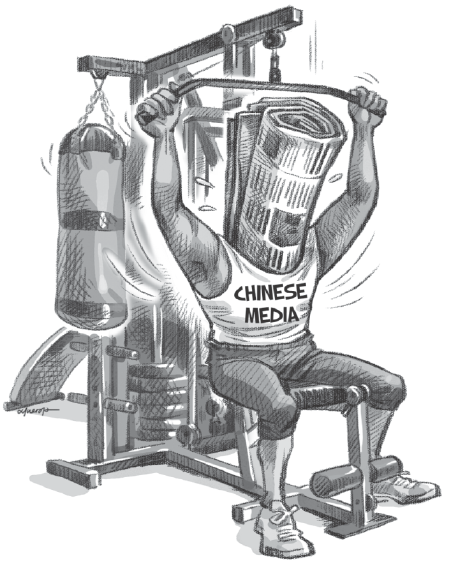Making the info highway a two-way street
By PHILIP J CUNNINGHAM (China Daily) Updated: 2016-03-01 10:25

The adept presentation of publicity and news, of nuance and nationalism put forward by the best media practitioners in the West suggests that the Chinese media, too, can tell it like it is even while serving as the official voice of the State. There are numerous ways to achieve this, but it is best made clear to readers and viewers where statements of the State begin and end-boxed editorials and crediting commentary to its source is one way to handle this.
The Chinese media can become more competitive in the highly competitive international market by being more robust in its presentation of a fresh, non-US centric view. In addition to offering real time information flow, essential to the business of business and cogent discussion and analysis, necessary to the judicious exercise of power, the news media is by nature a meeting place for a multitude of views.
China has already made great efforts to bring its media platform to other parts of the planet, what with TV satellites circling the globe, reporters fanned out across continents and printed newspapers in many cities.
But most readers and viewers around the world are too distracted or busy to tune into China and understandably worry about concerns closer to home. What they do learn about China is often secondhand at best, distorted by the prism of corporate mainstream media, time and distance.
Given the presidential election in the US this year, the lamentable tendency for dueling politicos to blame China for US shortcomings is fully expected. One way the Chinese media can gain greater traction in the West at such a time is to talk back.
Does Republican presidential candidate Donald Trump have something interesting to say about China? What do Chinese observers see when they see Trump? It would be interesting to know. What is one to make of Democratic presidential contender Bernie Sander's foreign policy? Ideas welcome. The time for a global dialogue is now.

I’ve lived in China for quite a considerable time including my graduate school years, travelled and worked in a few cities and still choose my destination taking into consideration the density of smog or PM2.5 particulate matter in the region.











